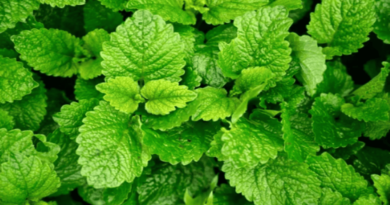Wormwood: Uses and Benefits
Wormwood (Artemisia absinthium) has fascinated humanity for centuries with its medicinal and culinary uses. Known for its bitter taste and potent properties, this ancient herb continues to play a significant role in natural remedies and holistic health practices. Beyond its historical association with beverages like absinthe, wormwood offers a wealth of health benefits that deserve attention. Today, both traditional and modern medicine recognize its potential to address a variety of ailments, making it a valuable addition to herbal wellness routines.
What is Wormwood?
Wormwood is a perennial herb native to Europe, North Africa, and parts of Asia. Its silvery-green leaves and small yellow flowers make it easy to identify in the wild. Historically, people have valued wormwood for both its medicinal and culinary applications. In ancient times, it was a staple in herbal remedies for digestive issues, parasitic infections, and even mental clarity. It also gained fame as a key ingredient in absinthe, a popular but controversial alcoholic beverage. Beyond these historical uses, the plant is packed with bioactive compounds, including absinthin and artemisinin, which are responsible for its powerful therapeutic properties. These compounds contribute to wormwood’s ability to combat inflammation, infections, and even parasitic diseases.
Medicinal Benefits of Wormwood
Wormwood contains powerful antioxidants and anti-inflammatory compounds that support overall health and well-being. Its most notable medicinal use lies in promoting digestive health. The herb stimulates bile production in the liver, which enhances the breakdown of fats and improves nutrient absorption. As a result, wormwood can alleviate common gastrointestinal issues, including bloating, gas, and indigestion. This makes it a valuable remedy for individuals who frequently experience stomach discomfort after meals.
In addition to its digestive benefits, wormwood is well-known for its antiparasitic properties. It has been used for centuries to treat intestinal worms, including pinworms and roundworms. Modern research supports these traditional uses, highlighting wormwood’s effectiveness in eliminating parasitic infections without causing significant side effects.
Another significant medicinal application of wormwood is its role in fighting malaria. Artemisinin, a compound derived from wormwood, is a crucial ingredient in antimalarial drugs. This compound has revolutionized malaria treatment, saving countless lives in regions where the disease is prevalent. Scientists continue to study artemisinin for its potential to address other health conditions, including certain types of cancer.
Culinary Uses of Wormwood
Though wormwood is best known for its medicinal properties, it also holds a unique place in the culinary world. Its intensely bitter flavor makes it a distinctive ingredient in beverages such as absinthe and vermouth. These drinks have a long and colorful history, with wormwood contributing not only to their flavor but also to their supposed stimulating effects.
In traditional cuisines, wormwood occasionally finds its way into soups, stews, and fatty meat dishes. Its sharp bitterness helps balance the richness of heavy meals, creating a more harmonious flavor profile. However, due to its potent taste and strong chemical properties, wormwood should always be used in moderation. Too much can overpower a dish and may even pose health risks.
How to Use Wormwood Safely
While wormwood offers numerous health benefits, it is essential to use it responsibly. Consuming excessive amounts of wormwood can lead to toxicity due to a compound called thujone. This chemical, when consumed in large quantities, can affect the nervous system and cause adverse effects, including dizziness, seizures, and hallucinations.
To avoid these risks, always consult a healthcare professional before using wormwood supplements or extracts. Wormwood is available in various forms, including teas, tinctures, capsules, and essential oils. When taken in appropriate doses and under professional supervision, it can provide significant health benefits without unwanted side effects.
Precautions and Side Effects
Wormwood is not suitable for everyone, and certain groups should avoid using it altogether. Pregnant and breastfeeding women should not consume wormwood, as it may cause complications. Similarly, individuals with epilepsy or kidney disorders are advised against using wormwood products, as they may exacerbate these conditions.
When using wormwood supplements or extracts, always follow dosage recommendations provided by manufacturers or healthcare providers. Overconsumption can result in side effects such as nausea, vomiting, dizziness, and, in extreme cases, nervous system disruptions. Being mindful of these precautions ensures that you can enjoy the benefits of wormwood without unnecessary risks.
Final Thoughts on Wormwood
Wormwood remains a powerful herb with a rich history and a wide range of applications. From aiding digestion and fighting parasites to playing a crucial role in malaria treatment, its potential benefits are undeniable. However, responsible use is crucial to avoid unwanted side effects and ensure safe consumption.
Incorporating wormwood into your wellness routine can offer natural solutions to common health problems. Whether taken as a tea, tincture, or supplement, it has the potential to improve your quality of life. Nevertheless, always consult a healthcare provider before beginning any new herbal supplement to ensure it aligns with your individual health needs.
References
- Bhattacharya, S. (2020). Herbal Remedies and Their Health Benefits.
- World Health Organization (2021). Artemisinin-Based Therapies in Malaria Treatment.
-
Jones, L. (2019). The Medicinal Uses of Wormwood.




